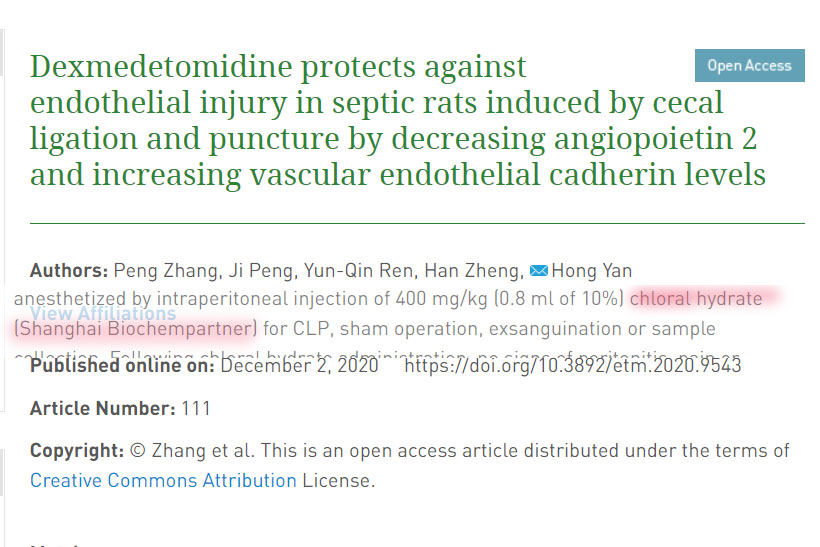Dexmedetomidine protects against endothelial injury in septic rats induced by cecal ligation and puncture by decreasing angiopoietin 2 and increasing vascular endothelial cadherin levels

Abstract The aim of the present study was to investigate the protective effect of dexmedetomidine (Dex) on endothelial injury in a cecal ligation and puncture (CLP)-induced rat model of sepsis. A total of 36 male Sprague-Dawley rats were divided into three groups: Sham, CLP and CLP + Dex. The wet/dry (W/D) ratio of lung weight, hematoxylin and eosin (H&E) staining of lung tissue, plasma levels of angiopoietin (Ang)1 and 2, ratio of Ang2/1 and vascular endothelial (VE)-cadherin protein expression levels in lung tissue were determined. The W/D ratio of lung tissue in the CLP + Dex group was significantly lower than that in the CLP group (P<0.01). The H&E staining results indicated that Dex treatment reduced the levels of CLP-induced alveolar septum widening, infiltrating white blood cells and congestion, when compared with CLP alone. In addition, the expression levels of plasma Ang2 and the Ang2/1 ratio in the CLP + Dex group were significantly lower than those of the CLP rats (P<0.01). Furthermore, the level of VE-cadherin protein in lung tissue of the CLP + Dex group was higher than that of the CLP group (P<0.05). The results indicated that Dex had a protective effect against CLP-induced endothelial injury, through the ability to reduce expression of the endothelial injury factor Ang2 and increase the expression of the endothelial adhesion junction factor VE-cadherin in a septic rat model. These data suggest a potential application of Dex in the clinical treatment of sepsis.




